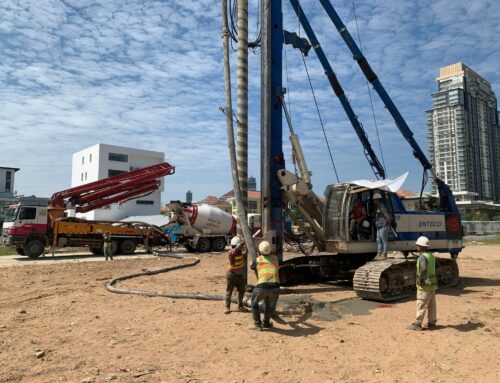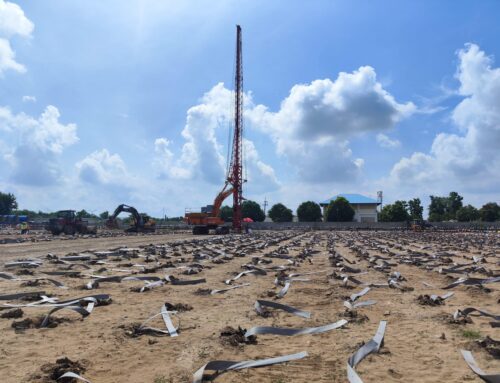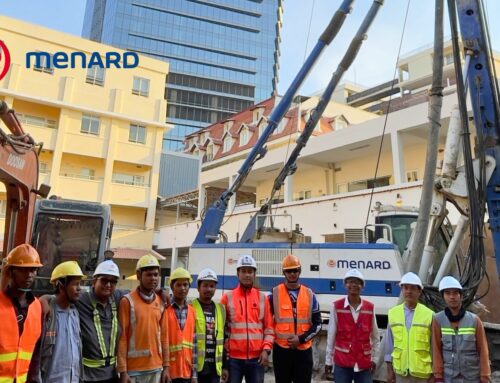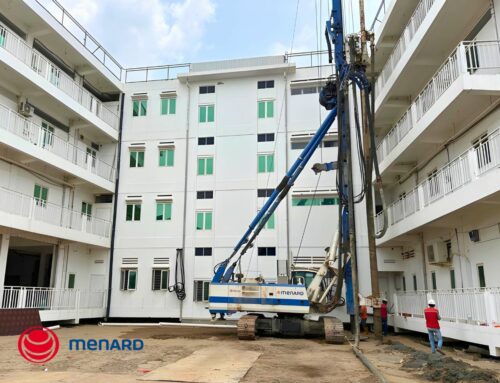Menard Asia in Bangladesh has completed the ground improvement work at the Ruppur Nuclear Power Plant area using Deep Soil Mixing.
Project Overview
Menard recently completed a ground improvement project at a key infrastructure site in Bangladesh. The project aimed to improve the foundation of a nuclear power plant’s central control room building, located on a site with challenging soil conditions. Our solution involved the use of Deep Soil Mixing (DSM) to enhance the strength and stability of silty sand, mitigating risks related to seismic activity and liquefaction. The project covered 12,315 m³ of soil, and Menard's team worked continuously to meet strict engineering standards of the project.
Ground Condition
The project site was primarily composed of silty sand, a soil type that is particularly susceptible to liquefaction during seismic events. The fine sands in the water-saturated zone had the following design characteristics: Q = 1.62 t/m³, c = 5.0 kPa, φ = 35.7°, and E = 30.9 MPa. These conditions posed a challenge, as the soil lacked the necessary strength and stability to support large-scale infrastructure, necessitating a robust ground improvement solution.
Menard's Ground Improvement Solution
To address the risk of soil liquefaction and improve the soil's bearing capacity, Menard utilized Deep Soil Mixing (DSM). This technique involves mixing the in-situ soil with a binder (cement slurry) to form a solidified material with enhanced strength and deformation properties.
In this project, DSM columns with a 2-meter diameter were installed to a depth of 8 meters beneath the foundation. The design parameters included a target Unconfined Compressive Strength (UCS) of greater than 2 MPa, a friction angle exceeding 35°, and a modulus of elasticity (E) greater than 100 MPa. The primary material used was CEM III/A 32.5 cement, with a cement rate of 0.30 t/m³ of soil and a water-cement ratio of 1:1.
A 0.5-meter thick protective layer was added above the top of the improved soil body to ensure its integrity during the construction process. Once the ground improvement was completed, this protective layer was removed, leaving a stable and solid foundation for the facility’s construction.
Menard’s team, consisting of a skilled workforce from two nationalities, worked double shifts, 24 hours a day, 6 days a week to ensure the project was delivered on time. The project was successfully completed in April 2023, providing a robust and stable foundation for the plant’s infrastructure.
Bangladesh 2023
Technique : Deep Soil Mixing (DSM)
Main figures : 12,315 m³ Area
Contact one of our experts today!
[contact-form-7 id="4444" title="References Forms"]




